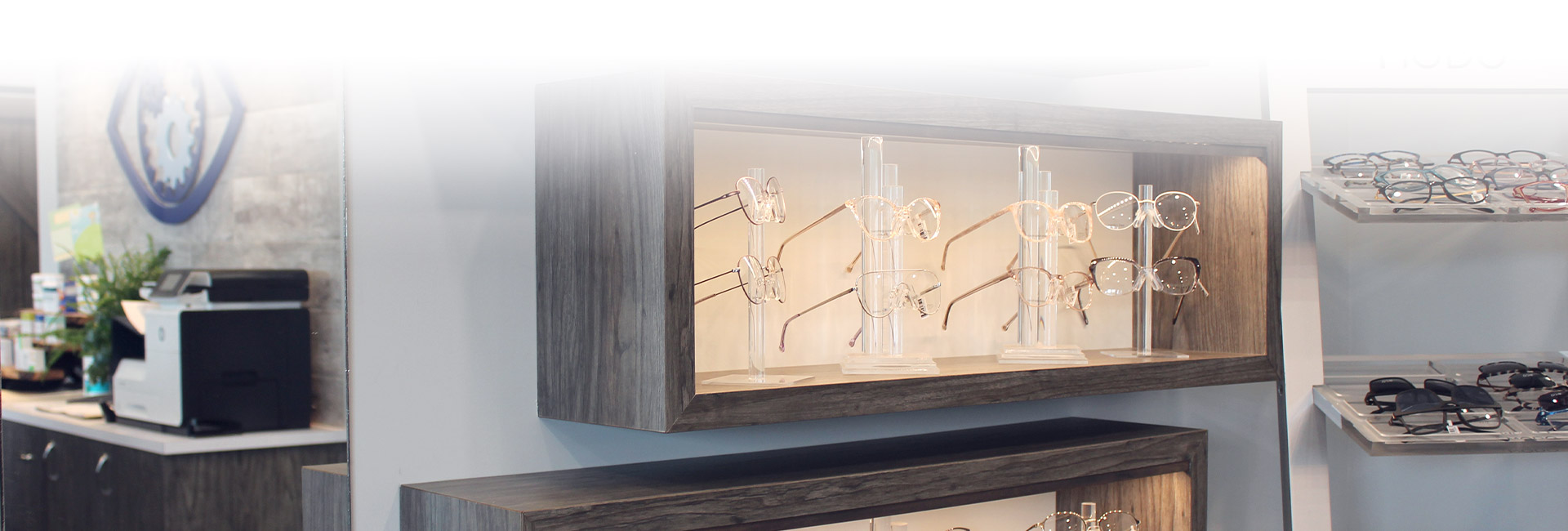Your eyes are complex. When there’s difficulty in how they work together, it can easily impact more than just your vision. Issues like headaches, blurry vision, and trouble focusing can all be attributed to how your eyes coordinate, which is largely due to a phenomenon known as binocular vision.
A binocular vision dysfunction test is designed to evaluate how well your eyes work together. Your optometrist can identify signs that your eyes are struggling, then create a personalized treatment plan to help you find relief.
What Is Binocular Vision?
Binocular vision is the ability of both eyes to work together as a team. They each receive similar images, then send the information along to the brain. The brain then combines these images so you can see the world around you. However, this system relies on your eyes being properly coordinated—if they are not, the brain receives jumbled information.
If your eyes are misaligned or are coordinating incorrectly, it can lead to visual distortions and other uncomfortable symptoms. This condition, known as binocular vision dysfunction, can significantly impact your everyday quality of life.
Signs of Binocular Vision Dysfunction
Sometimes, it’s easy to overlook binocular vision dysfunction. The symptoms can be easily mistaken for other unrelated conditions.
To identify binocular vision dysfunction, look for signs such as:
- Frequent headaches after reading or screen time.
- Persistent blurry vision despite wearing corrective lenses.
- Difficulty concentrating or focusing, especially for long periods.
- Vision going in and out of focus.
- Dizziness when moving your head or shifting focus.
- Feeling visually overwhelmed or dizzy in crowded environments.
- Struggling with activities that require strong eye coordination.
These symptoms can vary in intensity. However, they can all indicate a problem with binocular vision.
What Causes Binocular Vision Dysfunction?
Binocular vision dysfunction often stems from subtle eye conditions that disrupt proper alignment or focus. Common conditions known to cause binocular vision problems include:
- Strabismus: Also referred to as “crossed eyes,” strabismus is a condition where the eyes are misaligned and do not point in the same direction, occurring as an inward, outward, or vertical turn. It results from the brain’s difficulty coordinating the eyes to work together.
- Amblyopia: Amblyopia, or “lazy eye,” is a condition where one eye has significantly reduced vision compared to the other, even with glasses, typically due to abnormal visual development in childhood. The brain favours the stronger eye, leading to further weakening of the affected eye.
Other factors, such as neurological conditions, concussions, or trauma, can also contribute to binocular vision dysfunction. While these issues can sound complex, your optometrist can step in and help you find the clear, comfortable vision you deserve.
How Your Optometrist Tests for Binocular Vision Dysfunction
If you’re experiencing symptoms of binocular vision dysfunction, don’t ignore them. Instead, visit your optometrist as soon as you can for a comprehensive eye exam. This is the best way to gain a full understanding of your eye health.
During the appointment, your optometrist will evaluate your vision through a series of different tests. These can vary, but tend to include:
- Measurement of alignment between your eyes
- Assessment of focusing ability and eye movement coordination
- Tests to determine the presence of double vision or visual strain
- Thorough evaluation of depth perception
- Examination of how your eyes respond to light and focus adjustments
Your optometrist uses these tests to gain valuable insights into how your eyes work together. By identifying the underlying cause of your binocular vision dysfunction, we can create a personalized treatment plan to reduce your visual discomfort.

How to Improve Binocular Vision
Improving binocular vision involves a specialized treatment called vision therapy. It’s similar to physical therapy in that includes specific exercises designed to train the eyes and brain to work together. With consistency, you can significantly reduce the effects of problems like binocular vision dysfunction.
Vision therapy tends to include:
- Eye tracking exercises to improve the ability to follow moving objects smoothly.
- Convergence/divergence exercises to strengthen the eyes’ ability to focus on close objects.
- Peripheral awareness exercises to expand and improve overall visual field awareness.
- Coordination activities to enhance the synchronization between both eyes.
- Utilization of specialized tools, such as prism glasses to train visual coordination.
All of these treatments target a different aspect of your vision. However, by working closely with your optometrist, you’re steadily working towards improved eye function.
Let Our Team Treat Your Vision
Your eyes deserve care that goes beyond correcting blurry sight. At Beyond 20/20 Optometry, we’re here to support your vision health and improve your overall quality of life. Our team can diagnose the underlying cause of your visual problems and then create a personalized care plan to help you find relief. You deserve a holistic approach to eye care, and we’re ready to help. Schedule an eye exam with our team today, and take your first step towards clearer, more comfortable vision.




